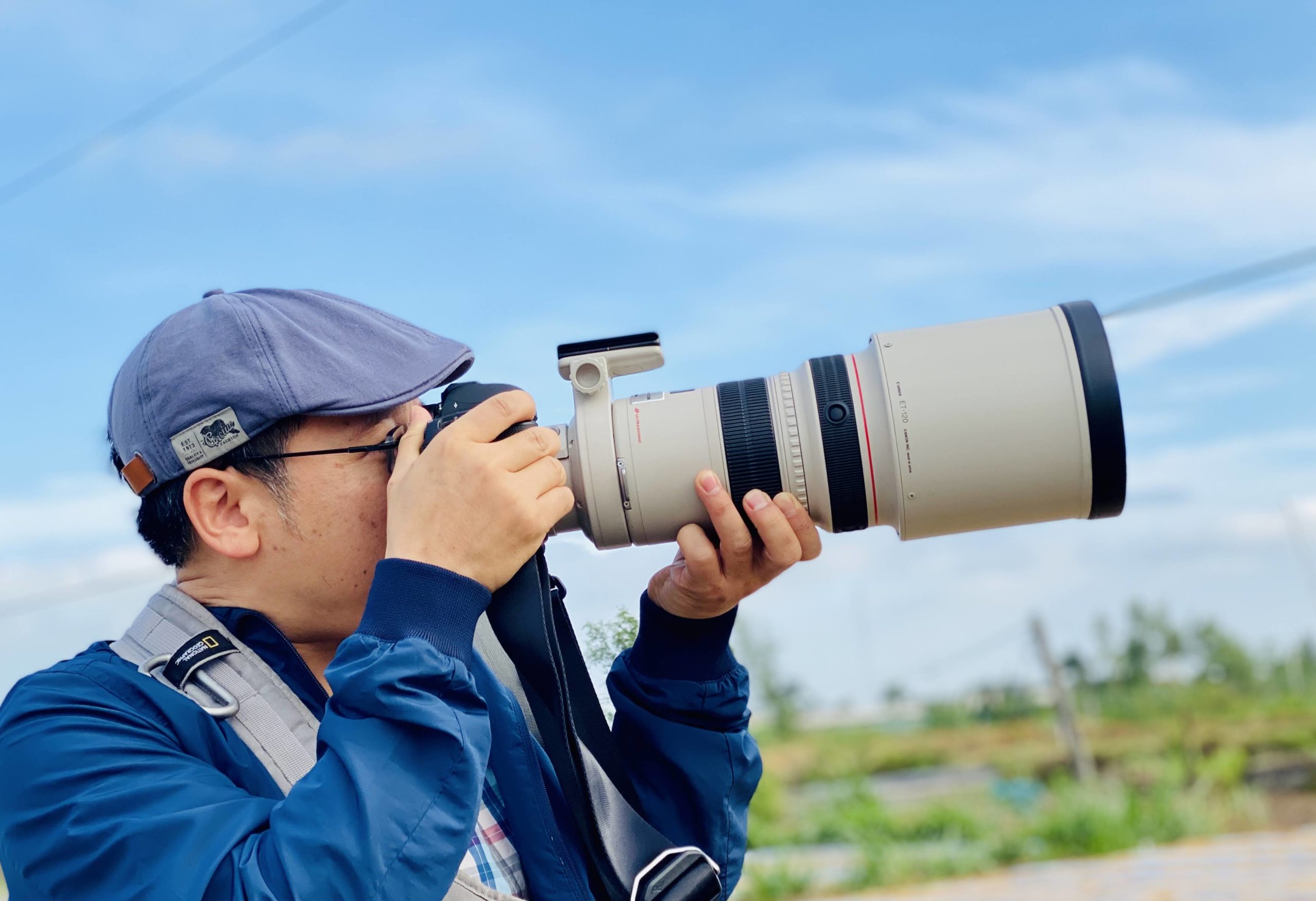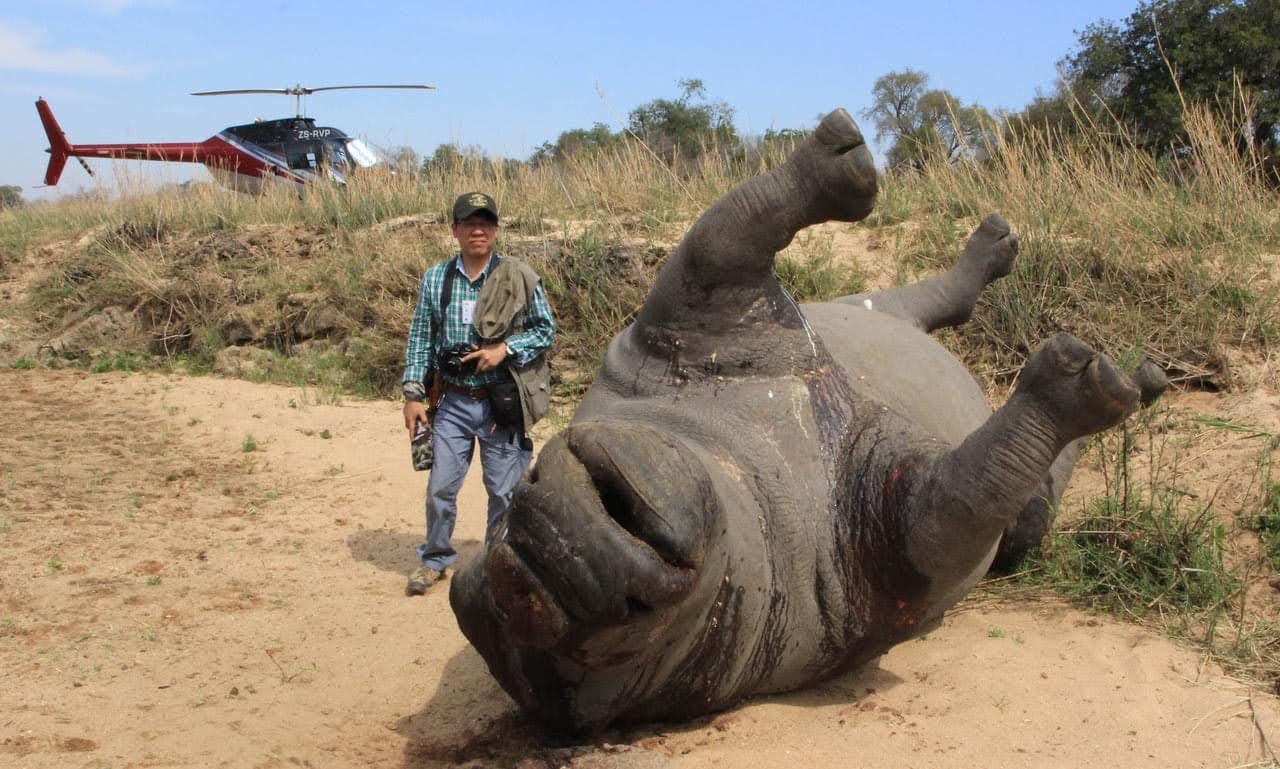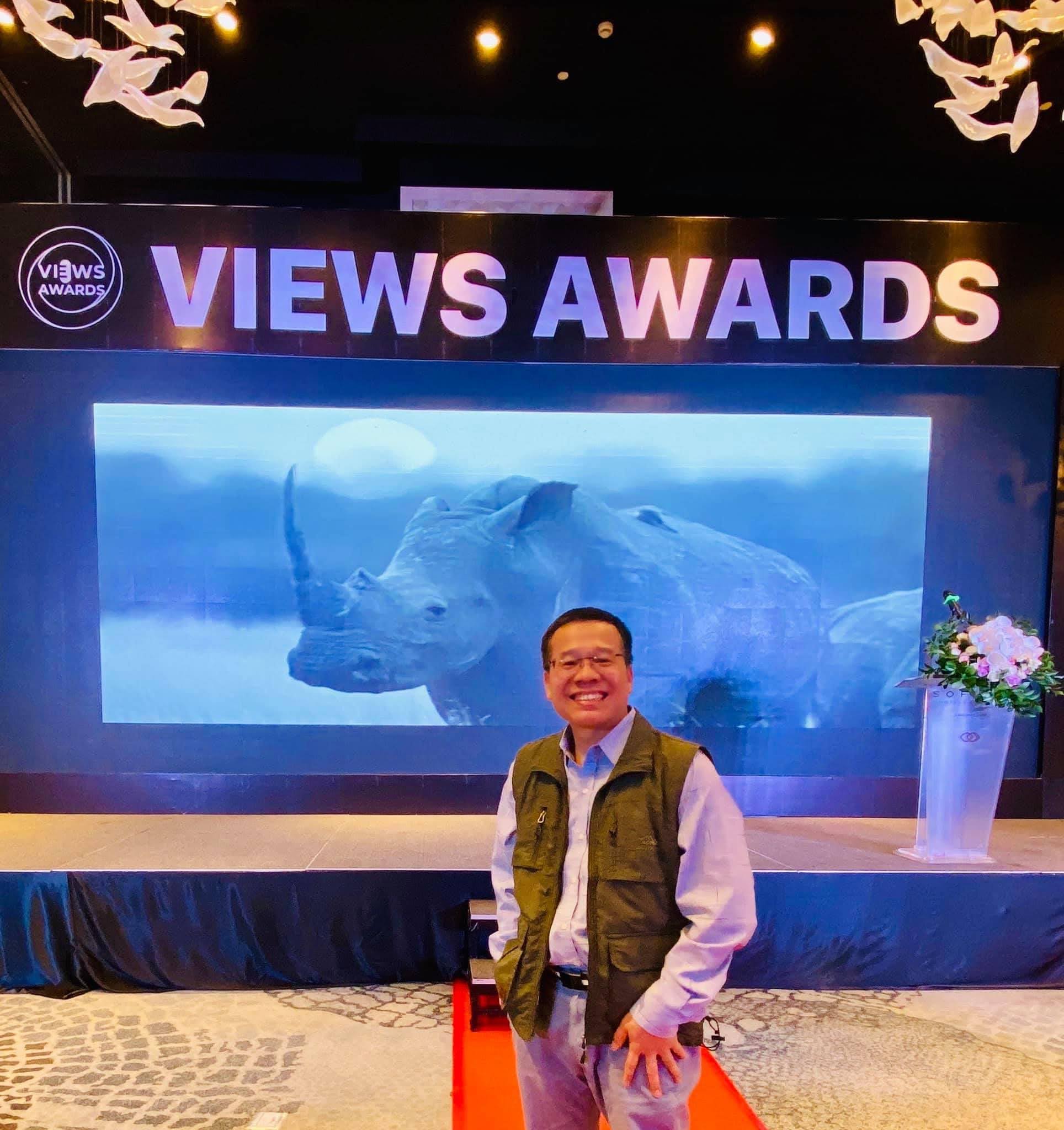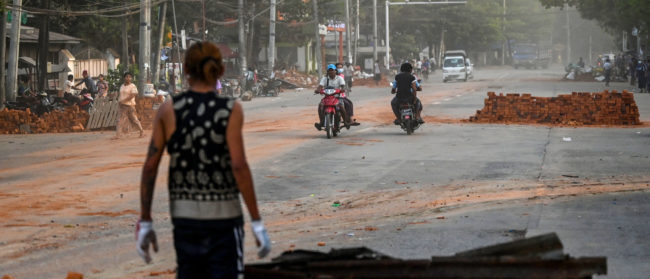It was almost five years ago to the day, and Do Doan Hoang was walking the empty road back to his motorbike, past houses and a construction site. Hanoi was smothered in an early morning fog, and Hoang, unbeknownst to him, was being followed.
As an investigative journalist in Vietnam covering stories on human trafficking and the illegal wildlife trade, Hoang knew the risks of his work. For a long time, he’d been receiving death threats from unknown sources likely linked to leaders of human trafficking and wildlife trade organisations he’d helped to expose.
As he approached his bike, Hoang, already wearing his full-face motorbike helmet, noticed a few men dressed casually in jeans and t-shirts, also helmeted and standing around. He’d initially assumed they were security guards from the construction site, but, as he attempted to turn the bike around, one man grabbed him as the other two began to beat him mercilessly with clubs and bricks.
His head protected from his helmet, Hoang held his waist tight, trying to protect his vital organs. The trio started work on his right index finger – he would later tell local publication Soha: “They want to ruin my grip on my pen.”
The crime remains unsolved, and even if he knew who his assailants were, Hoang wouldn’t be able to speak about it publicly.
For a long time, however, as the physical and emotional scars healed from his attack, Hoang struggled to feel safe. He sold his house, stopped going out at night and started reporting under a pseudonym. He even asked his children to wear motorbike helmets, like the one that protected him, whenever they walked down the street.
One of Vietnam’s most famous investigative reporters, Hoang has made a name by going undercover to shine a light on corrupt officials and mafia figures. As the star senior reporter of state-run newspaper Lao Dong, he’s known to the public as a semi-celebrity with a history of policy changes directly linked to his investigations.
“I’m generally disliked by the underground parts of society, but I’m driven by a passion for the job and always try to overcome this,” he told the Globe. “I try to show the negative cases, to shine a light into the darkness, with the help of the proper authorities who are actively engaged in stopping these issues.”

By the time the men attacked him, he was already deep into an investigation of Vietnam’s wildlife trafficking trade – a black-market industry with a little-known but estimated worth as great as $20 billion per year, made largely off the body parts of endangered animals. He’d gone as far as to visit South African tiger farms to find the source of big cat products imported to Vietnam, and though he now feared for his safety, he wasn’t going to stop his investigation.
The resulting story would eventually lead to a five-part series on the international illegal tiger trade and go on to win first prize at ‘VIEWS’ – Vietnam’s first award ceremony for environmental and development reporting from the activist organisational CHANGE.
Hoang told the Globe there was a distinct thrill in uncovering this story, which saw him go deep undercover as a buyer of illegal tiger products.
“It was unbelievable, unexpected and dangerous. But, the point of this series was to warn the community of the dangers of the illegal tiger trade, and to expose the subject,” he said.
The series was published on the Globe in January, with all the details of the story that Hoang felt safe revealing at the time. But it’s the details Hoang was forced to omit that might be the most enlightening, exposing the real leaders of the illegal industry.
These identities will remain a secret, he said, for his own safety.
“People often ask me, ‘why did you do so much but write so little?’” explained Hoang. “I must admit, writing like this is reckless. If I write everything and catch all of the people involved, they’ll never forgive me – particularly if they involve cases that the police have already solved.”

Hoang’s love of nature, he said, comes from a youth spent at the foot of Ba Vi mountain, just west of Hanoi, where he grew up throughout the 70s and 80s. There, he would wander through tea fields with his mother, helping her to pick earthy, floral leaves. In the afternoons, they would trudge down to the river to catch eels and water snakes.
In his book Buoi Thong, Hoang wrote about his tamed squirrel that would jump on his shoulder when he whistled. Villages would come and watch, calling him “Hoang Wolf”. But his wild dreams turned sour as he watched the slow development of construction and with it the destruction of the mountain forest.
Hoang left his countryside home to study journalism at what was then the Institute of Journalism and Communication, now the Academy of Journalism and Communication. From there, he built his name as a career journalist, working for state-run papers like World Security Newspaper, Thanh Nien Magazine, and Thanh Nien Newspaper, before landing his current position at Lao Dong.
Vietnam’s press landscape is usually characterised as one dominated by state censorship. Ranked 175 of 180 countries in the 2020 World Press Freedom Index, there have been several cases in recent years of bloggers and independent journalists being prosecuted in Vietnam.
But Vietnam is also home to eight state-run news agencies, as well as hundreds of news outlets. These are where Hoang made his career and learned to delicately balance the sensitive politics that dictate the parameters of being a journalist in Vietnam, while still covering hard-hitting subjects that spur action from the state. When he strikes this balance correctly, he says that it’s not higher-up officials that he has to worry about – rather his reporting has regularly angered corrupt police, gangsters and other underworld figures with a vested interest in silencing him.
“You have to be determined. You have to pursue the story to the end, even when fighting with negativity,” Hoang said. “But I always play by the rules of journalism in Vietnam, reporting to the proper authorities.”
That kind of perseverance has made him and his near-gonzo journalistic style famous to readers, as well as a central figure at Lao Dong. At the paper, he even has a nameplate on his desk that reads: Do Doan Hoang – special journalist.
This, in essence, means he can choose whether he skips meetings or takes time off work, taking ample time to invest himself in areas that he wants to see the most change, like the illegal wildlife trade.
The tiger is just one of many rare animals traded. This is my biggest concern as a journalist. To stop the harmful impact of this trade

Vietnam is quickly becoming one of the biggest markets for the illegal wildlife trade, and is implicated in hundreds of seizures in recent years. The tiger trade is just one animal in an extensive network that consumes every wild and exotic animal – from pangolins, to elephants and rhinos, down to palm civets and endangered primates.
“The tiger is just one of many rare animals traded,” Hoang said. “This is my biggest concern as a journalist. To stop the harmful impact of this trade.”
The journalist explains that the wildlife trade in Vietnam still lacks the necessary management and policies, but he’s working to push that change. He’s now focusing his efforts on a form of trapping called ‘mist nets’ – an almost invisible form of nylon or polyester mesh netting that catches anything that flies into it. It was originally used by ornithologists to capture wild birds for research purposes, but has taken on a more sinister role in Vietnam’s forests, where the birds perish, trapped in the unseen netting.
In December 2020, Hoang released his 20-part deep dive into the growth of this destructive industry, with information gathered in his usual undercover style, and signed off under a pseudonym – only revealing it as his work as the Globe publishes in English.
With a dedication to facts and research, as well as a dedication to righting wrongs, Hoang’s investigations have impressed those Vietnamese lawmakers intent on tackling corruption. He was recently invited by the minister of Natural Resources and Environment to help shape a draft directive that will land on Prime Minister Nguyen Xuan Phuc’s desk, which will be a separate directive focused mainly on the protection of migratory birds and wild birds in Vietnam.
But the wildlife trade is still, he said, just 20% of his work, spreading his attention across a range of community-focused topics, such as human trafficking and food safety. So far, he’s published over 30 books of memoirs, prose and investigatigative journalism – more than one for every year of his career, and when the Globe spoke to him in late February, he was off the back of a workshop with VTV, the national television broadcaster of Vietnam, educating staff on human trafficking issues.
However, he wouldn’t allow himself to deviate from the topic at hand, firmly committed to discussing wildlife trafficking. He explained that his goal is to preserve Vietnam’s nature so the children have a chance to see it, as well as the pursuit of anti-corruption.
“Society is a humane issue to write about. But perhaps the most humane topic is environmental protection,” he said. “For me, to bring something positive to the community is the highest honour of a journalist.”


